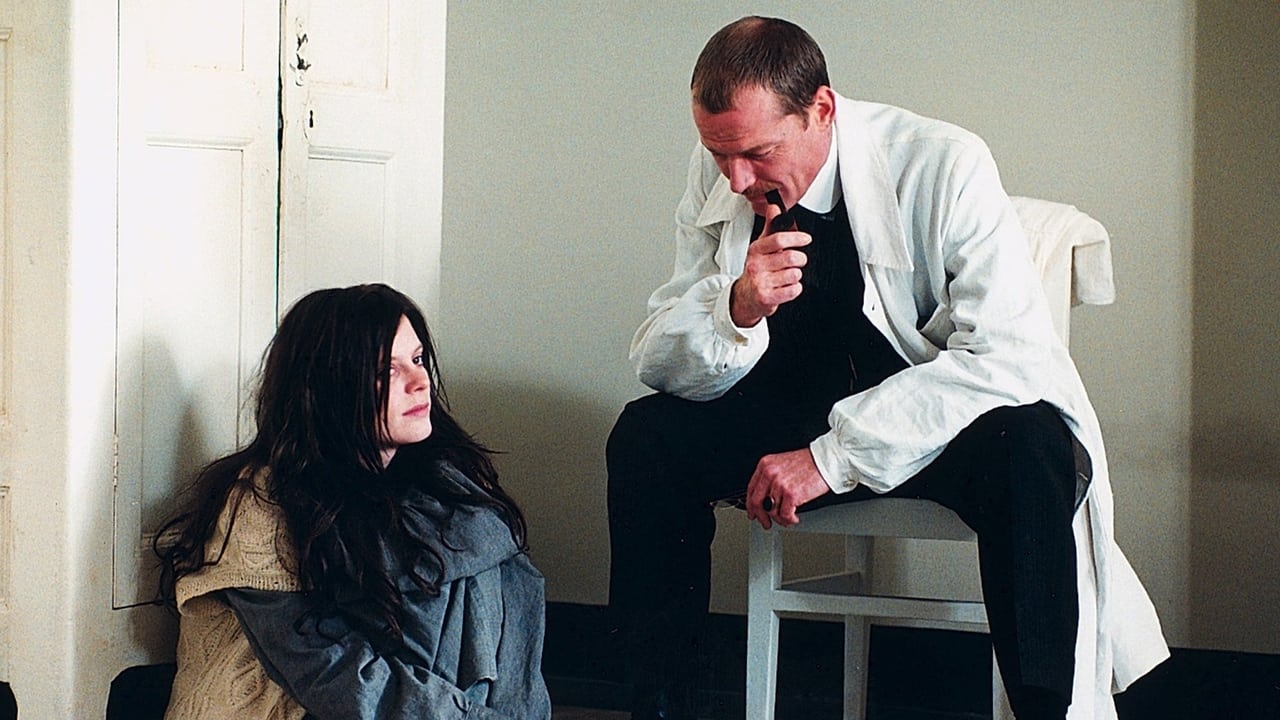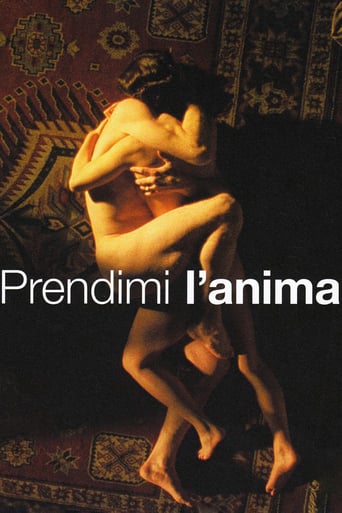



The acting is good, and the firecracker script has some excellent ideas.
View MoreThrough painfully honest and emotional moments, the movie becomes irresistibly relatable
View MoreStory: It's very simple but honestly that is fine.
.Like the great film, it's made with a great deal of visible affection both in front of and behind the camera.
View MoreCarl Jung, the Swiss psychiatrist, having decided to go on his own, set his practice treating people according to his own principles. Having been associated with Sigmund Freud for a while, he was getting known for his work with difficult cases, one of which involved Sabina Spielrein, a Russian young woman, that is brought over to him to see if he can help her. Basically, Sabina's problems were difficult to detect, although Jung determines to experiment the work he had developed with Freud in order to treat her illness. There are two narratives in this film. The other one takes us to the present time Russia where a young French woman goes to Moscow to do research on Sabina's case. Marie is determined to get to the bottom of Ms. Spielrein's work and her work in the famous White School, that she founded during the Stalinist era. Marie meets a Scottish scholar, Richard Fraser, who sees in the young woman a determination and resolve to get to know what happened to Sabina.After successfully treating Sabina, Carl Jung developed a passion for his patient, something that might have been considered as unethical. Dr. Jung was married to a cold woman who did not appreciate his work, or at least took no interest in what her husband was trying to accomplish. The relationship ended badly as the doctor came to his senses thinking in his family and his standing in the medical community. Sabina, on the other hand, decided to go back to Moscow where she married and had children. Those were hard times in the old Soviet Union, but she prevailed in establishing a school that was revolutionary in its own right. Mary's research gets to the bottom of the story as she goes to Rostov where the last part of Sabina's life were spent and where she died with the thousands of Jews that lost their lives in the conflict.Directed by Italian Roberto Faenza with an international cast, we saw an English version of the film. We do not know whether the film was shot in Italian, or was conceived just as we watched it on a DVD transfer. We had enjoyed Mr. Faenza's "According to Pereira" with the great Marcello Mastroianni. Mr. Faenza contributed to the screenplay which was written in collaboration with about six other writers. The film presents a good story, but the screenplay does not do justice to the story of Sabina. No doubt, the creators had the best intentions in mind to present an interesting account about a subject that unfortunately leaves a lot to be explained and the second narrative seems a bit superfluous in our humble opinion.Iain Glen, the Scottish actor is seen as Dr. Jung. Emilia Fox plays Sabina. Craig Ferguson and Caroline Ducey are the researchers that uncovered the facts of Sabina's fate.
View MoreIn the present days, Maria Spielrein (Caroline Trousselard) and Fraser (Craig Ferguson) are in Russia making a research about the life of Sabina Spielrein (Emilia Fox). In the beginning of the Twentieth Century, this Russian girl was a patient treated by Dr. Jung (Iain Glen) and later they fall in love for each other and Sabina became his lover. While the researchers read the documents, the romance between Sabina and Dr. Jung is disclosed, in a time of revolution and war."Prendimi l'anima" is a sensitive and very beautiful romance. In accordance with the DVD, the attractive story is based on true events, and the movie has a wonderful cinematography and costume design. The direction is excellent and Emilia Fox is fantastic in the role of a crazy patient and obsessive lover. I am not sure whether the screenplay is original, since it recalled me Neil LaBute's "Possession", of the same year, with Gwyneth Paltrow and Aaron Eckhart and showing two parallel in time romances, but anyway watching "Prendimi l'anima" is worthwhile. My vote is eight.Title (Brazil): "Jornada da Alma" ("Jouney of the Soul")
View MoreThis movie *could* have been much more than it was. We have two historical figures, psychiatrist Karl Gustav Jung, and a gifted patient, Sabina Spielrein, who first becomes Jung's lover, and then a child psychiatrist in her own right. I had been hoping for deep psychological insight, instead I got a cartoonish loony (Sabina) and a starchy doctor (K.G. Jung). The characters are over-simplified, and their complex relationship is dumbed down to Harlequin Romance level. Furthermore, Sabina's life in Russia and her accomplishments are barely even mentioned in the movie. The subplot with Marie and Frazer (the present-day researchers) is 100% unnecessary, too. So, in the end you are left with a pleasant, if sleepy, non-controversial movie, suitable for airing on national tv at prime time. Come to think of it, maybe this is what they had in mind all along...
View MoreVery confused and confusing movie... as if the director (served by a terrible screenplay) couldn't decide what to do with it... Reflections on the healing power of love (and on its destroying power as well?)? Passionality and personality against social rules? Historical glimpse on the late 800 and early 900's psychiatry and the birth of dynamic psychoterapies (on which nothing short that a vague attention to the unconscious and the enphasis on the human relationship - as an attempt to humanize said psychiatry - is said... )? Moreover the counterpoint story in contemporary times, short of clarifying those themes, seems only to add cliché to cliché...I'd say Emilia Fox could have worked as Sabine Spielrein, BUT in another movie with another director... Not so bad Iain Glen as the esteemed young Carl Gustav Jung, even if the real one was a much more complex person, deserving to be treated with respect and care by able hands...Thumbs down to Jane Alexander, who should return to host TV games on Italian TV where she started...
View More